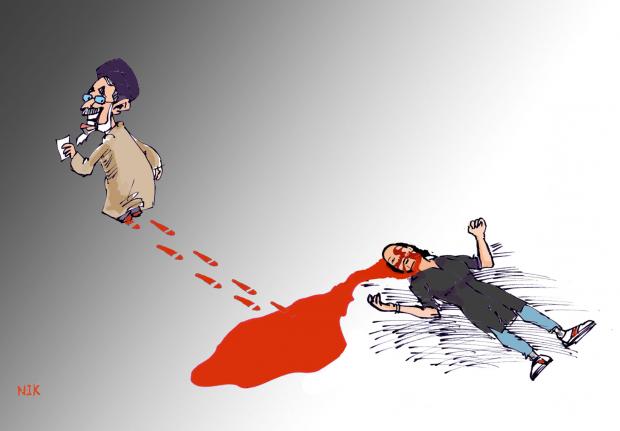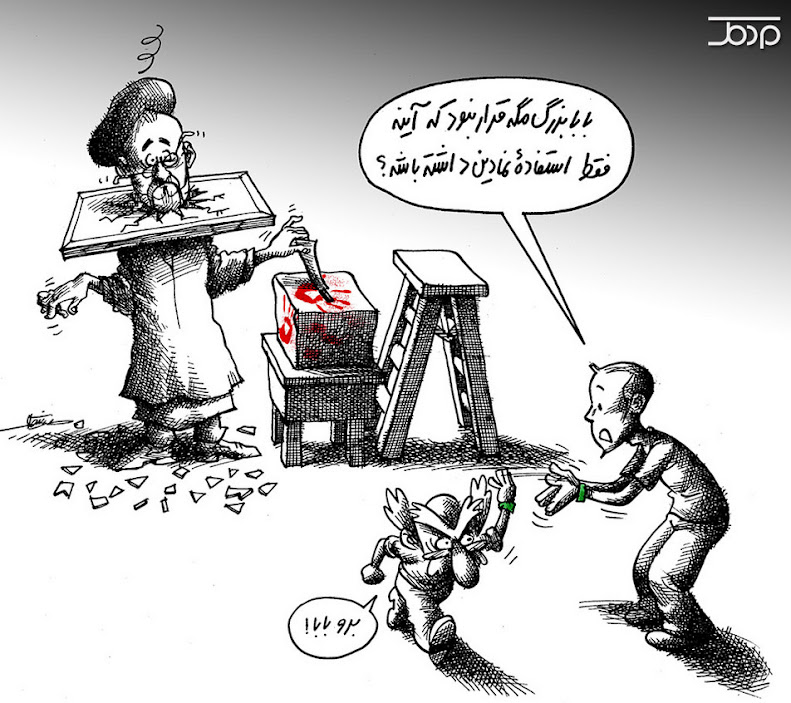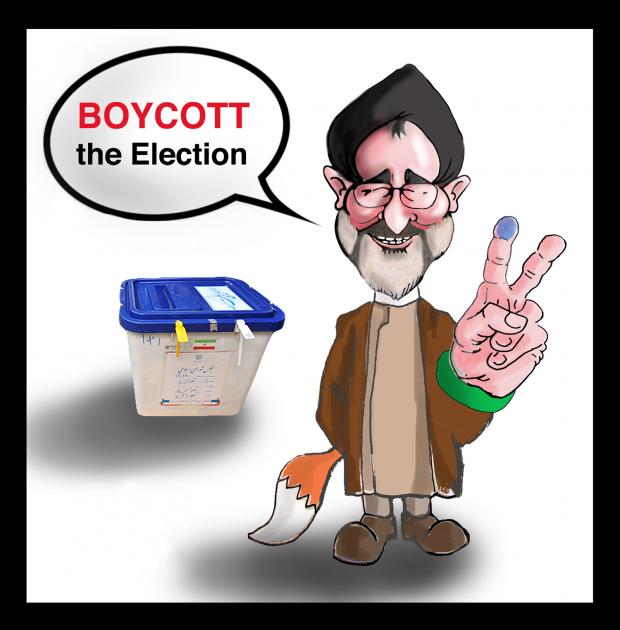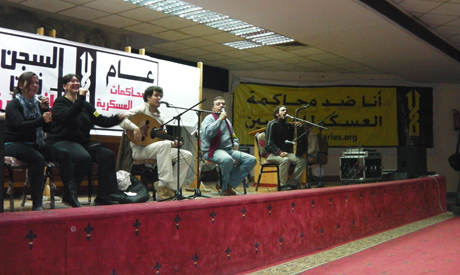Eskendrella play at the close of the To Military Trials for Civilians press conference, on their anniversary
It's been one year since the night Amr El-Behairy, 32, was beaten by military personnel in front of Egypt's parliament building in downtown Cairo. He was later dragged out of a car, arrested, and sentenced to jail by a military court. Many others that night faced similar fates.
The same day, 26 February 2011, marked the launch of the "No to Military Trials for Civilians" campaign. On 24 March 2011, activists, human rights lawyers and families of detainees held their first group meeting at Cairo's Hisham Mubarak Law Centre. Today, the campaign boasts offices in the capital and Alexandria and conducts countrywide public-awareness campaigns.
The campaign advocates for the release of over 12,000 civilians, including minors, tried and sentenced by military courts in the absence of lawyers and witnesses – or the right to appeal. The conviction rate from these tribunals stands at 93 per cent, with 18 people having been sentenced to death, according to statistics provided late last year by military court head General Adel Morsy.
To date, official figures indicate that 2,613 detainees have so far been released. Finding accurate information about detainees or those facing trial, however, remains extremely difficult. Thousands of others, meanwhile, remain unaccounted for.
In October of last year, Field Marshal Hussein Tantawi, head of Egypt's ruling military council, announced a halt to the practice of referring civilians to military courts – with the notable exception of cases falling under Egypt's longstanding emergency laws. Many human rights activists, however, say the latter proviso renders the move meaningless.
The "No to Military Trials" campaign has been key to securing the release of numerous political detainees. El-Behairy, who was sentenced to five years in jail for attacking military personnel, became an icon of the campaign and Egypt's revolutionary movement. Last week, after almost a full year of campaigning on his behalf, El-Behairy was finally released by authorities.
On Sunday night, the "No to Military Trials" campaign marked its one-year anniversary with a press conference and concert at the Egyptian Journalists Syndicate. Families of those who remain in jail, released prisoners, and victims of abuse by the state all spoke at the event.
Among them was Samira Ibrahim, 25, who sued the government after being subjected to a forced virginity test by an army officer in March of last year. Rasha Abdel Rahman, another virginity-test victim and a witness in Ibrahim's case, announced that she, too, would be filing a complaint, drawing a standing ovation from those in attendance.
Rasha Azab, a well known journalist and activist detained on the same day as Ibrahim, also spoke about her arrest by authorities for broaching the issue in print.
The sister of detainee Mohamed Khaled, sentenced to three years in a military prison in Fayoum, said that she couldn’t recognise her brother when she paid him a visit because he had been so badly tortured.
Some people had even been tortured to death and buried in the desert, said recently-released detainee Abul Maaty. He says he was tortured continuously for four days after being detained in February of last year.
The brother of Essam Atta, 24, who, according to his family was tortured to death while in military detention, spoke about how the official medical report had said that his brother had died of a drug overdose. “We haven’t been able to investigate my brother’s death,” he said, verging on tears.
Mostafa Mohamed El-Ghareeb, a man in his 40s who was slapped with a jail sentence because the military thought he was somebody else, described how he had been stripped and beaten despite having a serious heart condition.
After each person spoke, the room erupted in spontaneous chants against the government and the ruling military council.
Military trial victim Alaa Abd El-Fattah, the renowned blogger detained for over a month by the army for refusing to accept the military court's legitimacy, also attended the event. He was accompanied by his activist wife Manal and mother Laila Soueif, who herself went on hunger strike to demand her son's release.
Ahmed Harrara, the 31-year-old dentist who lost both eyes to birdshot fired by Egyptian security forces, was likewise welcomed to the event with hearty applause.
"It was important to see many of the victims, but we have a long struggle ahead of us," said Maha Maamoun of the "No to Military Trials" campaign. "We're currently working on a new constitution. We’re also working on a draft law to change the articles of Egyptian military law that refer to civilians."
Alongside the release of El-Behairy, the "No to Military Trials" campaign was also recently able to celebrate activist Maikel Nabil's release from jail. The Egyptian blogger was sentenced to jail in March of last year for writing a blog critical of the ruling military council. Nabil withstood a 130-day hunger strike to protest his detention that led to his eventual release in January.
The evening concluded with a performance by revolutionary band Eskenderella, whose song Segn El-Alaa – "The citadel Prison" – is dedicated to those facing military trials.
 Some 10,000 demonstrated in favour of Sharia in Tunis on Sunday
Some 10,000 demonstrated in favour of Sharia in Tunis on Sunday

















